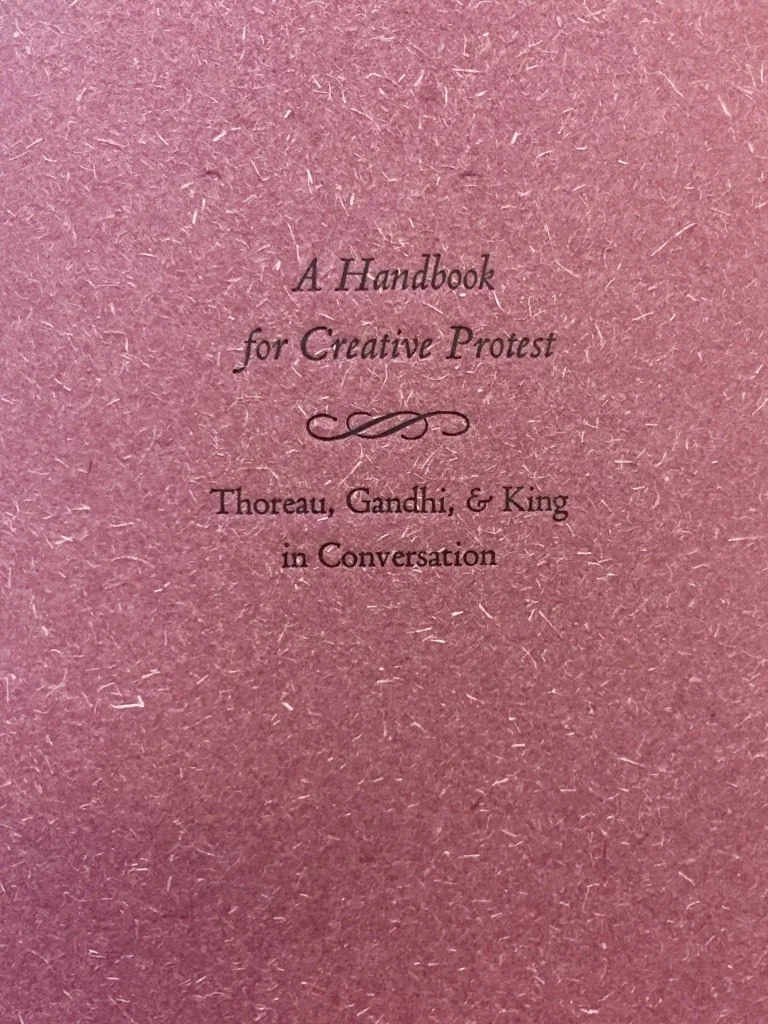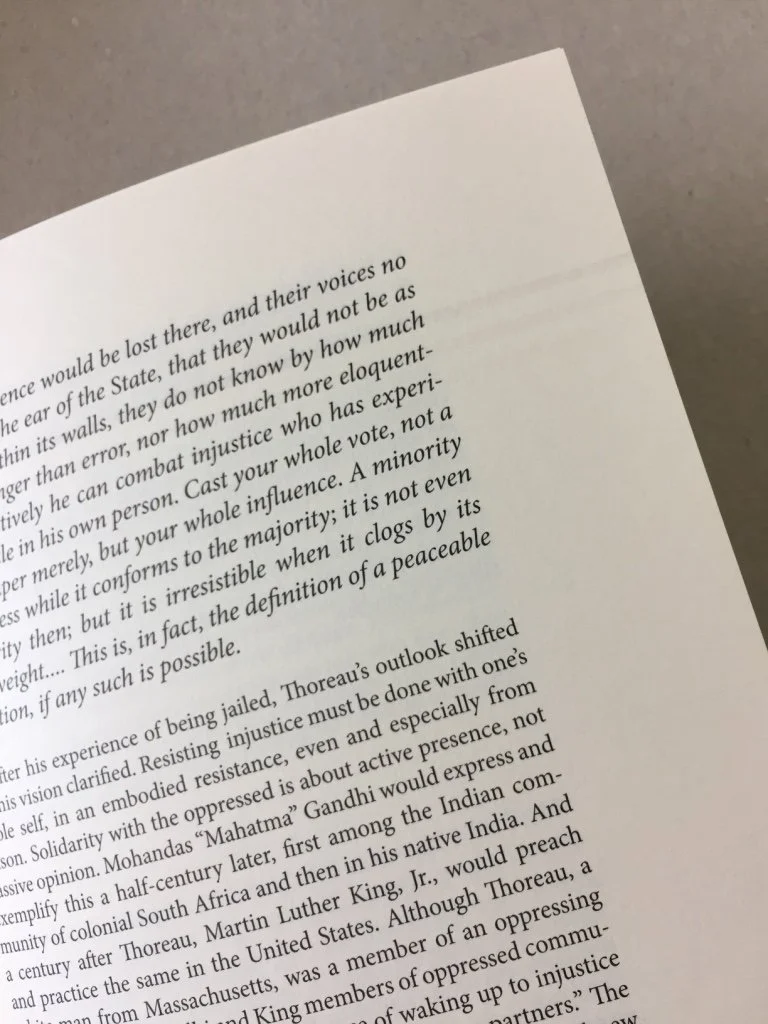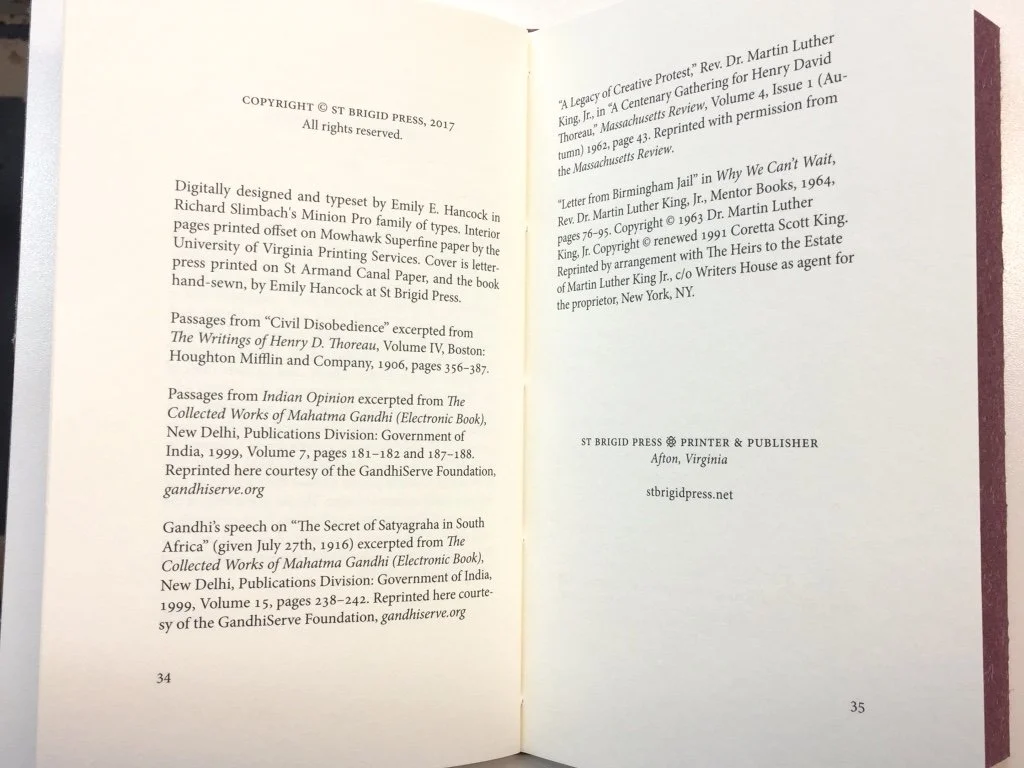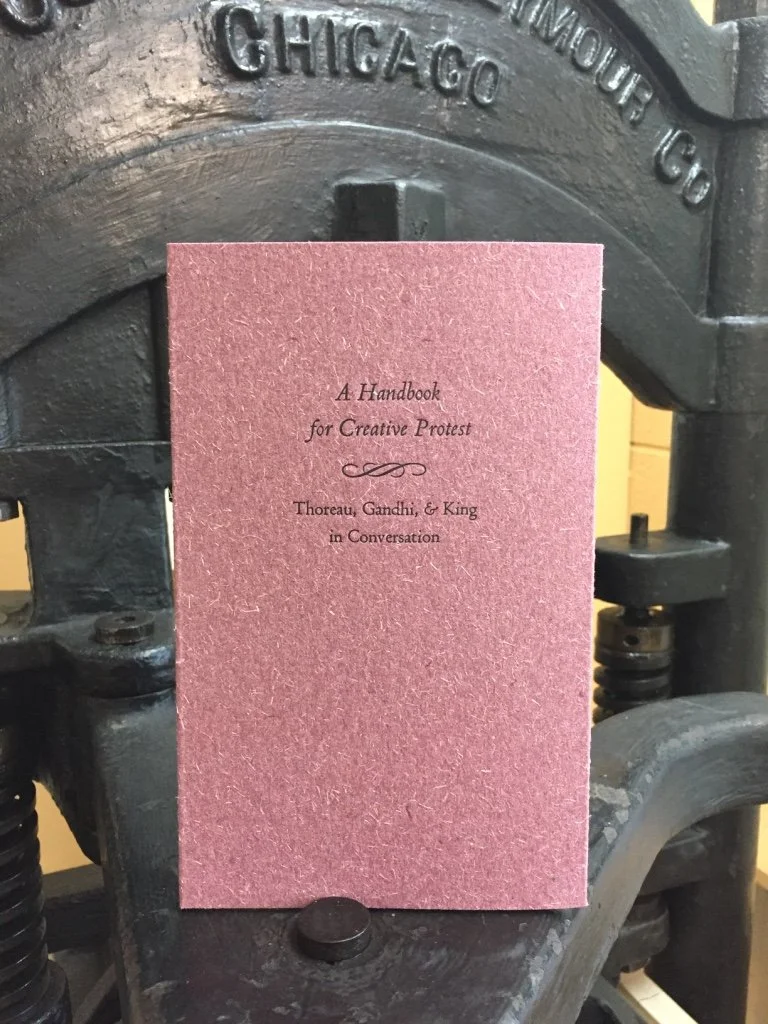A Handbook for Creative Protest: Thoreau, Gandhi, & King in Conversation
A Handbook for Creative Protest: Thoreau, Gandhi, & King in Conversation
In his 1848 essay "Civil Disobedience," Henry David Thoreau artfully articulates a philosophy and practice of engaged, embodied, nonviolent resistance to injustice. Mohandas K. ‘Mahatma’ Gandhi and Rev. Dr. Martin Luther King, Jr., would later be strongly influenced by Thoreau as they worked for peaceful change in their own historical moments. This Handbook offers excerpts from the writings of these three seminal figures, along with brief commentary, to present the vibrant interrelationships of their thought and action. Their insight and encouragement is as resonant today as ever, offering us wise guidance as we carry on the work of thinking, speaking, and practicing peace and justice today.
Excerpts from "Civil Disobedience" (Thoreau), Indian Opinion (Gandhi), & "Letter from Birmingham Jail" (King)
Accompanying commentary by Emily Hancock
Bibliographic suggestions for further reading
36 pages, 8" x 5"
Interior pages offset printed; jacket letterpress printed & hand-sewn at St Brigid Press
ISBN 978-1-947590-00-7
“We often hear the names Thoreau and Gandhi and King spoken together. Here, Emily Hancock brings their words together, where they reflect and illuminate both their past and our future. Her comments remind us that, though the world may still have a long journey in our struggle against injustice, the path, as set out by Thoreau, Gandhi and King, is clearly the path we must be on.”
About the Editor: Emily E. Hancock is the founder of St Brigid Press, a letterpress printing and publishing company in Afton, Virginia. Her books have received numerous accolades and are housed in private and special collections in the US, UK, France, and elsewhere. She is the author of several volumes of poetry, includingThe Open Gate: New & Selected Poems and Falling Into Place.
*** The following is an abridged version of Emily Hancock's introduction to the Handbook, as given on 7/23/17 at the official book launch event at Black Swan Books in Staunton, Virginia. ***
"Henry David Thoreau was a complex fellow. He did love nature and solitude, considered them necessary to one’s well-being, but he was not an anti-social hermit. He championed living deliberately, and part of that meant living deliberately or consciously in community. To engage with thoughtfulness, openness, and directness with one's family, one's neighbors, one's government. And even to widen or redefine the concept of who one’s neighbor is.
Thoreau advocated that, when something becomes clearly, demonstrably amiss in the social fabric (in his lifetime, it was the enslavement of people across this country and the perpetration of the Mexican-American war) then that deliberate thoughtfulness and direct engagement must be brought to bear in the situation. Thoreau eloquently lays out such a philosophy and practice of nonviolent resistance in his essay "Civil Disobedience,” first given as a lecture in 1848. This would become a touchstone for both Mahatma Gandhi and Martin Luther King, Jr.
Henry was clearly part of the white, privileged, oppressing class in 19th century America. And Gandhi and King were born into the oppressed classes in different times and circumstances and cultures. Yet all three men came to a similar understanding of what to do when faced with injustice: 1) to awaken oneself and one's community to the fact of injustice; 2) to mindfully and bodily resist that injustice, right now, even to the point of imprisonment; and 3) to trust in the power of deliberate moral action, regardless of numbers.
I just want to highlight, in all of this, the importance of consciousness, of thinking deliberately, of understanding the issue or issues at hand, and considering one’s own feelings and emotions in the mix. I think Thoreau and Gandhi and King felt that this step cannot be circumvented or left out. We must think deeply as well as act courageously, so that any action we take is a conscious response, not an unconscious reaction."
~ Emily Hancock, 7/23/17
Copyright © St Brigid Press, 2017. All rights reserved.







